
China
13:26, 16-Jul-2017
Mountain patrollers in Hoh Xil: The heroes behind UNESCO recognition

The successful inclusion of Hoh Xil (also known as Kekexili) to UNESCO's World Natural Heritage List last week has filled the whole nation with joy, more so for the mountain patrollers who worked hard for the protection of the nation's natural reserve.
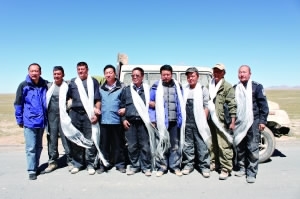
A group photo of the mountain patrollers /Guangzhou Daily newspaper
A group photo of the mountain patrollers /Guangzhou Daily newspaper
The high altitude and fierce weather of Qinghai Hoh Xil makes it inhospitable for human beings, but a paradise for wild lives including the endangered Tibetan antelope. They are capable to survive this harsh highland environment while its exceptionally fine underfur makes it a target for illegal hunters.
The amount of Tibetan antelope has drastically dropped due to illegal poaching, more than 50% decline in the last 20 years of the last century.
Central and local government agencies have long implemented strong measures to protect the wildlife at the "roof of the world."
The anti-poaching patrols formed in the 1990s have done successful work in rooting out poachers and shielded antelope from slaughter.
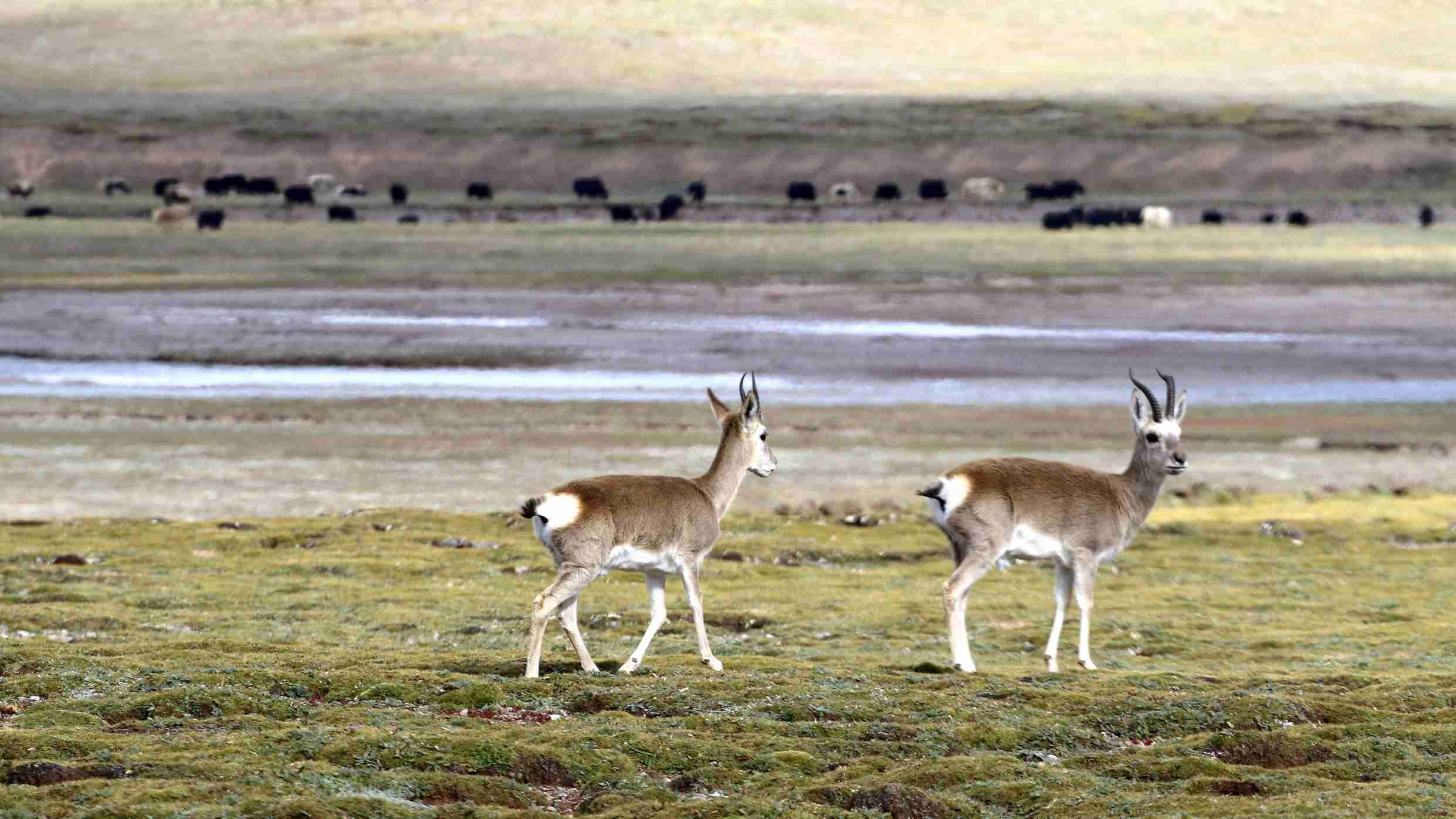
Tibetan antelope in Hoh Xil /VCG Photo
Tibetan antelope in Hoh Xil /VCG Photo
The way to UNESCO
Qinghai Province launched the application process to UNESCO in October 2014 and formed scientists groups in various areas to work together to meet UNESCO's qualifications.
Suoang Geleg, head of the Wudaoliang Conservation Station in Hoh Xil and a mountain patrol for 20 years, accompanied experts from International Union for Conservation of Nature (IUCN) to inspect Hoh Xil for several times.
"The experts are shocked by the biodiversity in Hoh Xil,” he said, saying the experts then concluded that Hoh Xil meets the criteria to be included on the World Heritage List.
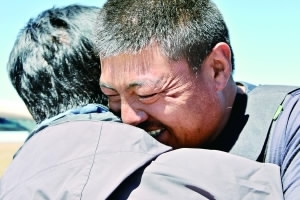
Suoang Geleg (R), head of the Wudaoliang Conservation Station in Hoh Xil /Guangzhou Daily newspaper
Suoang Geleg (R), head of the Wudaoliang Conservation Station in Hoh Xil /Guangzhou Daily newspaper
The IUCN later said in its report that Hoh Xil’s “geographical and climatic conditions have nurtured a unique biodiversity” and “the property secures the complete migratory route of the Tibetan antelope, one of the endangered large mammals that are endemic to the plateau.”
Dedicating lives
Suoang Geleg, along with the 40 other mountain patrols in this uninhabited area, has gone through the rigors of living in the wilderness, fighting against the poachers and preventing illegal mining to save the wildlife and the environment.
The quiet ranger has more to say when talking about Hoh Xil, "Gunshots have been away for almost 12 years in Hoh Xil, and we as patrollers were willing to sacrifice our lives in exchange of a peaceful land."
Now there are about 60,000 antelopes inside the nature reserve area, a substantial growth from the lowest time of 20,000 in 1997. The area is also a habitat for 20,000 Kiangs and over 10,000 wild yaks.
"Without mountain patrols, Hoh Xil would be the slaughterhouse of antelopes and illegal mine field for criminals."
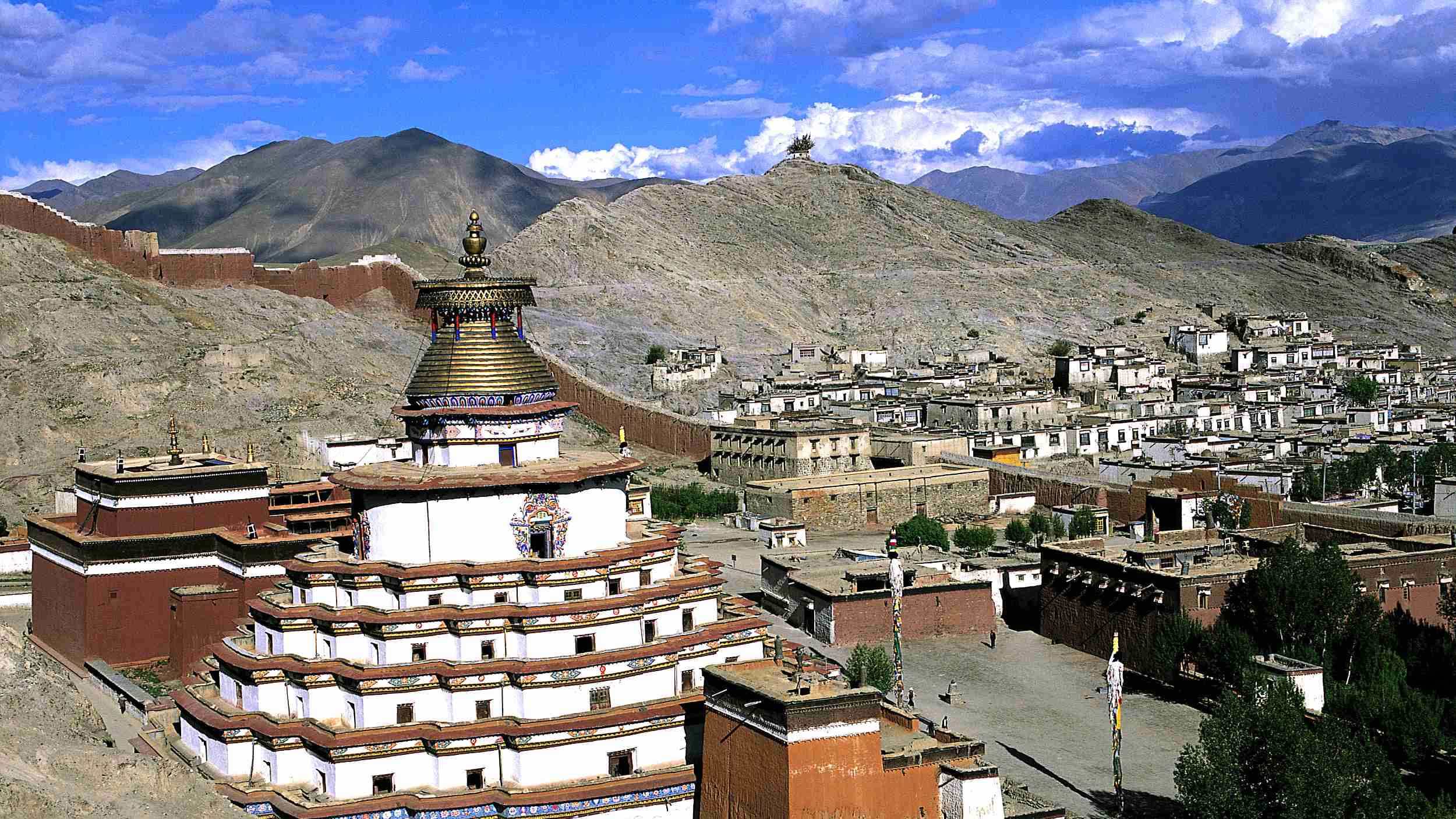
Scenery in Hoh Xil /VCG Photo
Scenery in Hoh Xil /VCG Photo
Honor and responsibility
Twenty years of protecting the nature reserve area has seen a remarkable achievement. From only three to five antelopes in 1997, groups of antelopes are now seen at the field, ready to welcome visitors.
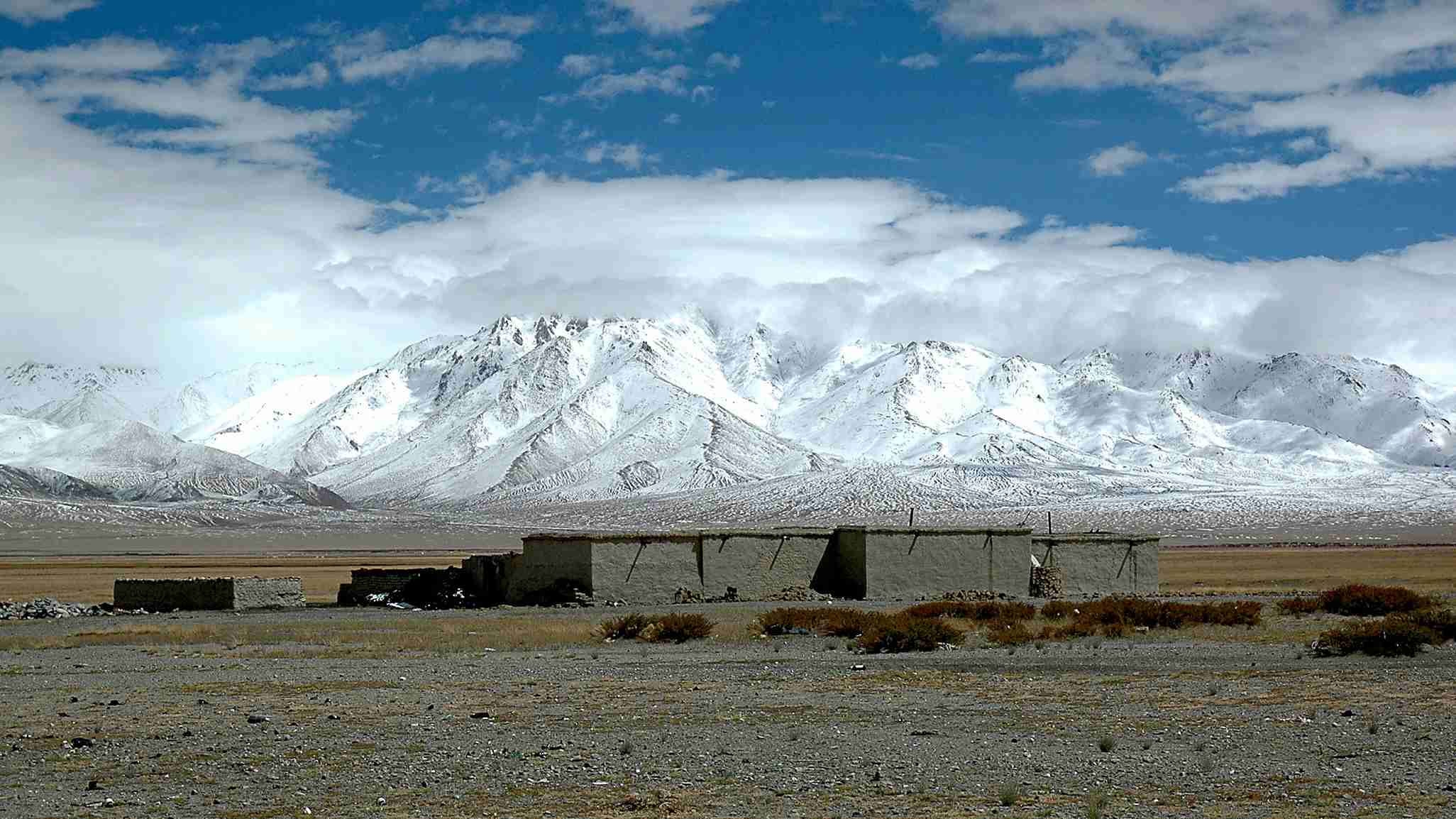
Scenery in Hoh Xil /VCG Photo
Scenery in Hoh Xil /VCG Photo
However, besides the joys, the inclusion on the list was overshadowed by a statistic that Qinghai researchers released, that the salt lake area in Hoh Xil have expanded 4.5 square kilometers last year.
The swelling of salt lake area would lead to a barren grassland and erosion of soil, which would further threaten the Qinghai-Tibet railway and highway, as well as important oil pipelines, cables and power facilities that run through the region.
"Being listed in the UNESCO is not just a glorious honor, but means more burdens and responsibilities. We feel more pressures but also much more motivated. It’s our duties to guard this pure land, even if we have to sacrifice our lives," Suoang Geleg said.
(Story based on Guangzhou Daily newspaper)
2147km

SITEMAP
Copyright © 2018 CGTN. Beijing ICP prepared NO.16065310-3
Copyright © 2018 CGTN. Beijing ICP prepared NO.16065310-3